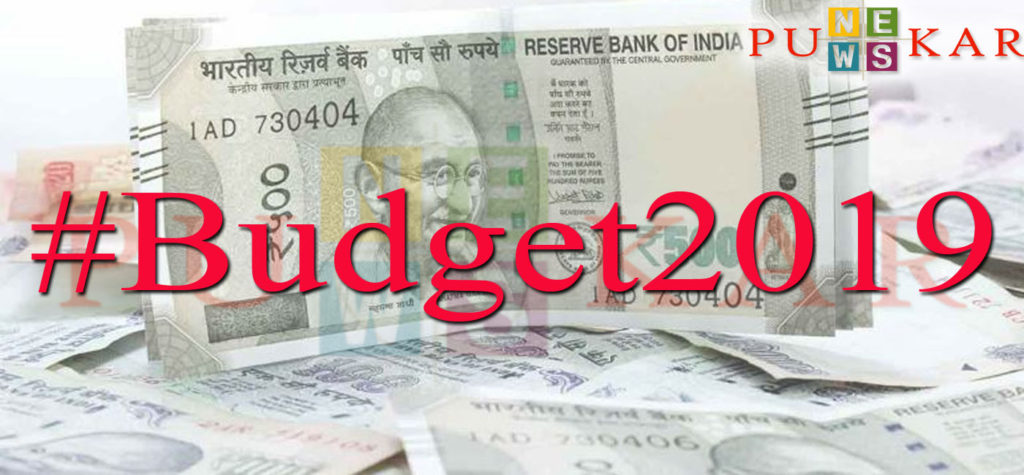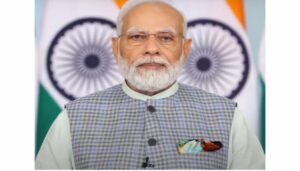Interim Budget 2019 Reaction by Corporates and Business Owners

Mr Piruz Khambatta, Chairman CII (Western Region)
and Chairman & Managing Director, Rasna
The interim budget has been presented with a positive outlook. The Budget announcements have largely taken care of the agriculture sector, middle income class and unorganized sector. The additional income for this population will lead to enhanced spending and higher economic growth. Fiscal deficit of 3.3% forecasted for 2018-19 has been revised upwards by 10 basis points. However, I think this is well managed given the incentives provided to the rural sector. On the agri front, direct income transfers to farmers having holdings of less than 2 hectares is a welcome move and help reduce risk to farmers. Social security contribution for workers in the unorganized sector is game changing. Last but not the least, full rebate for individuals earning income upto Rs.5 lakhs will boost purchasing power significantly. Overall, this budget is all encompassing and has something for every class of the society.
Mr. Amit Gupta, Director of Legal & Corporate Affairs, Vikram Solar.
“In a situation where there is scarcity of financing options for renewables and manufacturing units are dying a slow death, the budget provides no ray of hope.
The industry was expecting a policy direction from the government to promote manufacturing, especially in the renewable energy sector in the background of job crisis, which India is facing right now. Surprisingly, this was completely missing from the budget.
Budgetary allocation for the MNRE remains approximately the similar to capital allocated in FY 2017-18, standing at INR 5200 crore. Unfortunately, the Government did not act upon the Parliamentary Standing Committee recommendation, which reinstatement the funding of renewable energy projects through National Clean Energy Fund (NCEF), which was diverted towards GST compensation fund since 2017.”
Vijayaraghavan Kannan, Chairman, Sathguru Management Consultants Private Limited
The budget focuses extensively in addressing the rural sector pain and will provide bottom up propelled change in rural economic livelihood. The focus on fishery sector is commendable and the digitization of villages for networked connectivity. However, the agriculture transformation would require game changing technologies to be deployed for farm productivity and a focus on bringing that change would have complimented the contemplated reforms in rural agriculture.
Pushpa Vijayaraghavan, Director & Healthcare Practice Lead, Sathguru Management Consultants Private Limited
The budget has extensive focus on the rural dwellers and middle class. Farmers stand to gain with the direct income transfer and the salaried class finally gets its due with the Rs. 5 lakhs tax exemption. The attention to animal husbandry and especially fisheries is a positive step as this significant potential to result in tangible enhancement of farmer incomes. However, there is negligible visibility on roadmap for growth targets being actualized. The healthcare and education sectors are still crying for attention – while we continue to be excited about the transformative potential of the Ayushman Bharat scheme, without a significant allocation or incentives for creation of healthcare delivery capacity, the scheme will remain a goal and will not translate to tangible reality. The healthcare sector across pharmaceuticals, medical devices and healthcare delivery need urgent attention but haven’t received any focus. The API problem in pharmaceuticals is a national security threat and remains unaddressed. Overall, my biggest disappointment is that the manufacturing sector and industry have been ignored and no tangible measures have been rolled out for industrial growth and resultant job creation.
Ragunathan Kannan, Director, Sathguru Management Consultants Private Limited
This budget is a good cocktail of prudence and populism, being the last one before upcoming election. The boost to middle class and MSME is in the right direction. The tax section contains quite bit of rational announcements, which will go to improve overall savings and growth rate. Overall, well balanced in the interim.
“The 2019 Union Budget, presented by Finance Minister Piyush Goyal was conservative, on account of it being an interim budget. Good emphasis has been given on the agri-economy, defence spending along with infrastructure and MSMEs. The most marked proposal in this year’s budget was tax exemption for those earning upto Rs. 5 lakhs, which will stand in good stead with the larger population in India. We welcome the government’s move to add more digital villages over the next five years, as digital innovation is transforming both governance delivery and creation of breakthrough services by the private sector”.
Mr Peter Kerkar, Group CEO, Cox & Kings.
The move by the government to increase the tax exemptions will lead to additional savings thereby leading to more discretionary spends and travel and tourism can be one of the beneficiaries. The overall emphasis on improving rural connectivity with an outlay of Rs 190 billion will lead to easier access to key tourism destinations which are located in rural and semi-rural areas. Furthermore, the government’s continued emphasis on the North East by allocating additional resources to the region will dramatically improve the connectivity and give a boost to tourism.
Ms. Neelu Singh, CEO & Director, Ezeego1.
“The interim budget highlights the government’s proposition to further enhance the infrastructure of roads, railways, airports, urban transport and inland waterways which will bring new and unexplored destinations on the tourists map as well as enhance the overall travel experience. A vision for a Clean India with enhanced regional connectivity will be a great leap for Indian states promoting existing as well as new tourism products”
Sampad Swain, Co-Founder & CEO, Instamojo
“Although an interim budget, the anticipation had been high across various sectors – thus indicating the focus areas to be covered by the government. The scenario however looks positive for the MSMEs, given the initiatives announced by the government. While ease in obtaining loans for MSMEs continues to remain the need of the hour, additionally aided by the government’s 59-minute loan portal, the hike in the GST threshold has certainly brought about a major relief for MSMEs. Additionally, the government’s aim to empower 1 Lakh villages digitally only gives us further hope to identify an addition of more MSMEs in the country, which is currently populated with 6.3 crore enterprises, given that digital adoption by small businesses has always been a challenge to fight through, for the fin-tech sector. Further, the reduction in the GST slab from 18% to 6% could be a great move to encourage new and aspiring entrepreneurs to begin new ventures.
The government’s mandate of 25% of goods procurement from SMEs will help the sector scale up, not only in terms of quantity, but will also enable wider reach, thus expanding to different markets. This budget has opened doors to a new focus area – women entrepreneurs in the MSME sector. Supply of goods to the government will help women-owned SMEs and MSMEs achieve stability in business, and scale-up further.”
Tarun Chugh, MD&CEO, Bajaj Allianz Life insurance:
The Interim Budget has a balanced tone and there are takeaways for all sectors. It is prudent and not as populist as everyone expected keeping in mind the election year. While for our industry, there weren’t any clear measures and advantages, however, with tax benefits being provided to people with income of INR 5Lakhs, the savings component will increase in households, and add to India’s consumption story. It would have been a shot in the arm for India’s life insurance industry if our annuity schemes would enjoy privileges similar to those provided for NPS. However, just as the government’s health insurance schemes and awareness programs had a positive rub-off on the overall health insurance industry, I hope all the positive measures announced around social pension schemes will encourage more Indians to understand the need to save towards retirement.





